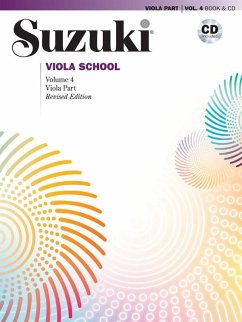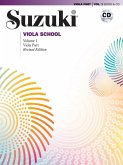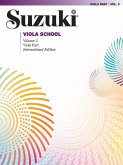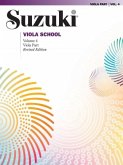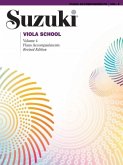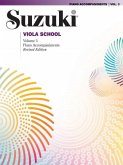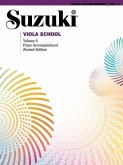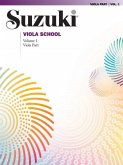The Suzuki Method® of Talent Education is based on Dr. Shinichi Suzuki's view that every child is born with ability, and that people are the product of their environment. According to Dr. Suzuki, a world-renowned violinist and teacher, the greatest joy an adult can know comes from developing a child's potential so he/she can express all that is harmonious and best in human beings. Students are taught using the "mother-tongue" approach. Now available as a book & CD kit. Titles: Concerto No. 2, 3rd Movement (F. Seitz) Concerto No. 5, 1st Movement (F. Seitz) Tonalization: Lullaby, Wiegenlied, Op. 98, No. 2 (F. Schubert) Tonalization: Lullaby, Wiegenlied, Op. 49, No. 4 (J. Brahms) Concerto in D Minor, 1st Movement, transcribed from Concerto in A Minor, Op. 3, No. 6 for Violin (A. Vivaldi) Concerto in D Minor, 3rd Movement, transcribed from Concerto in A Minor, Op. 3, No. 6 for Violin (A. Vivaldi) Concerto in G Major (Largo, Allegro, Andante, Presto) (G.P. Telemann) Concerto inG Major for Two Violas (Lento, Allegro, Largo, Vivace) (G.P. Telemann).

